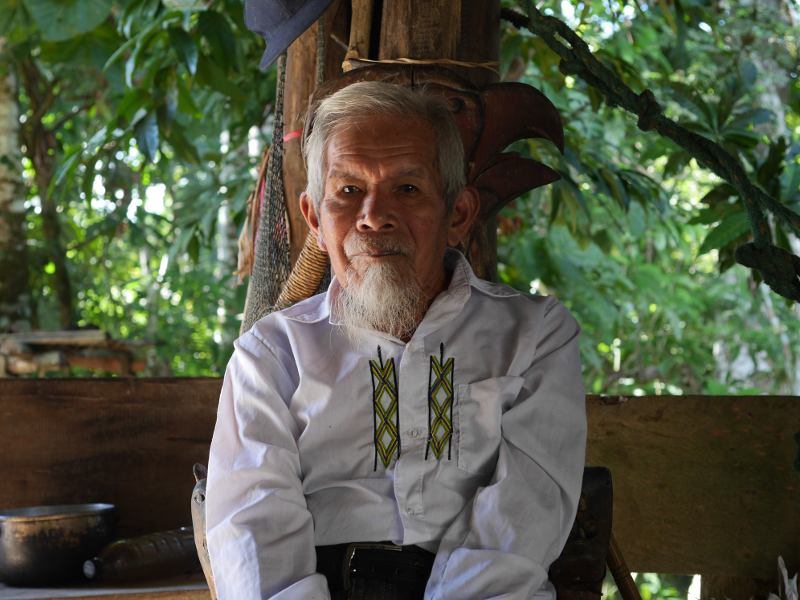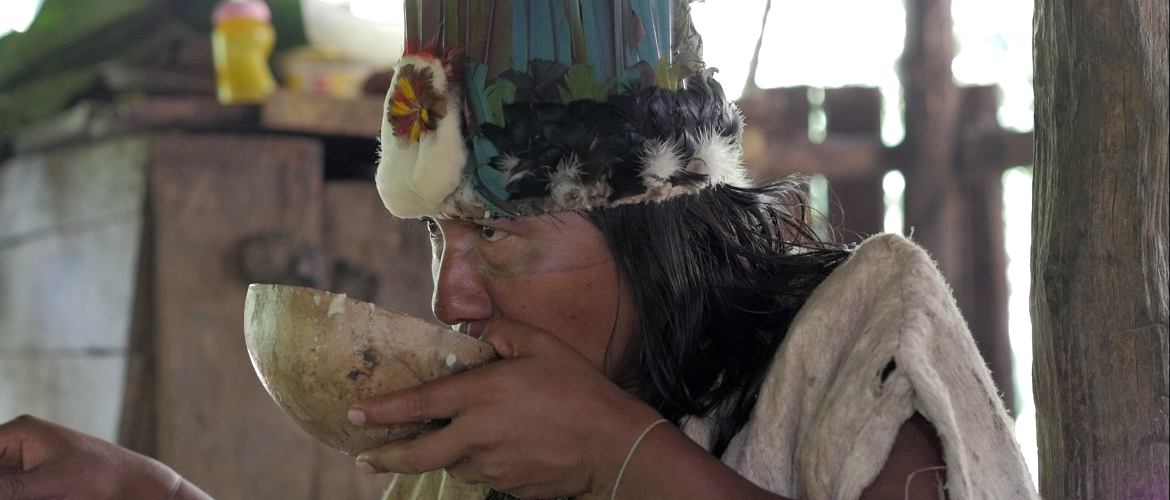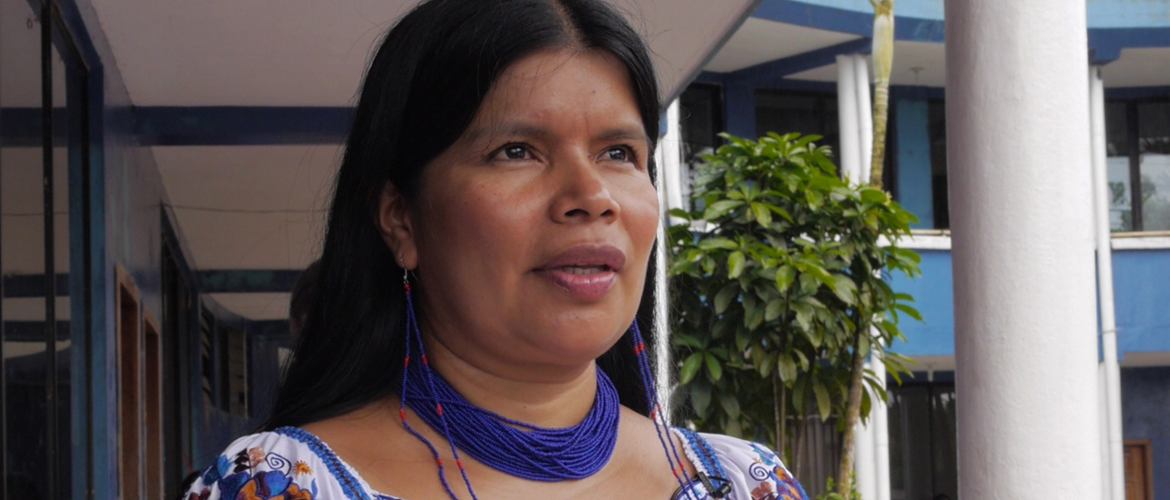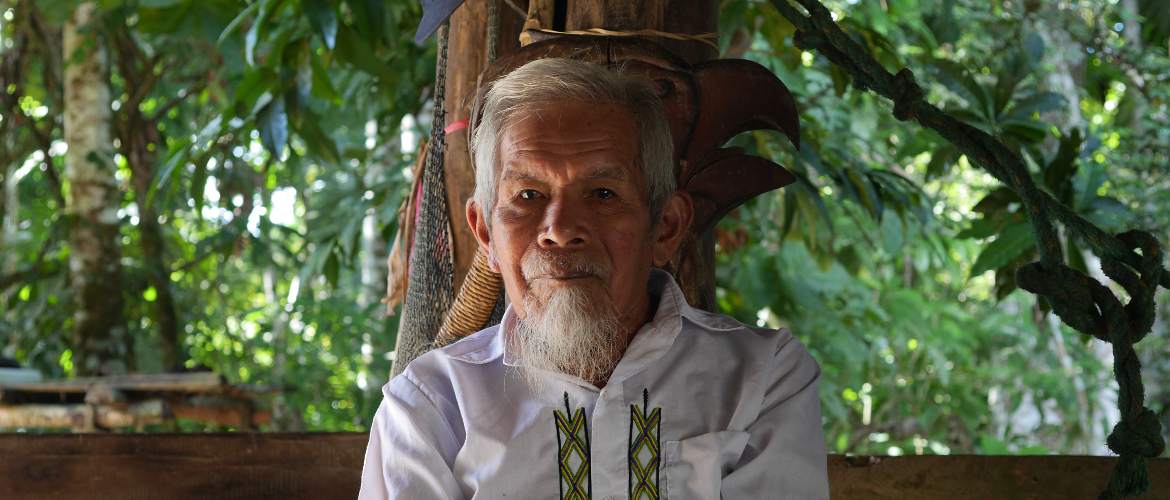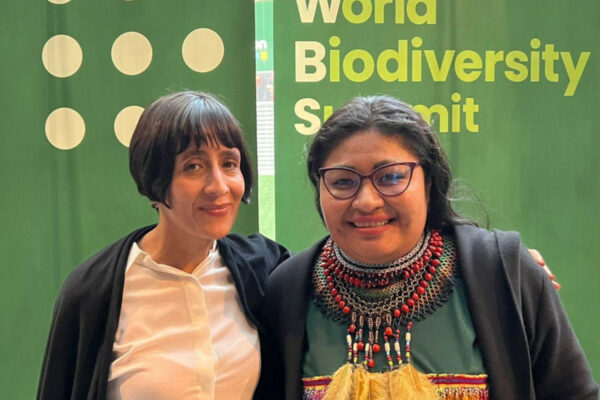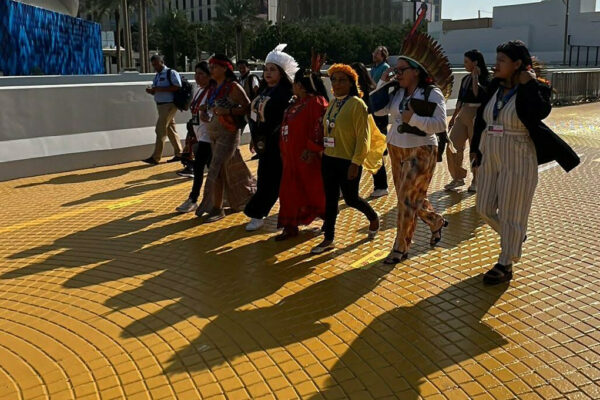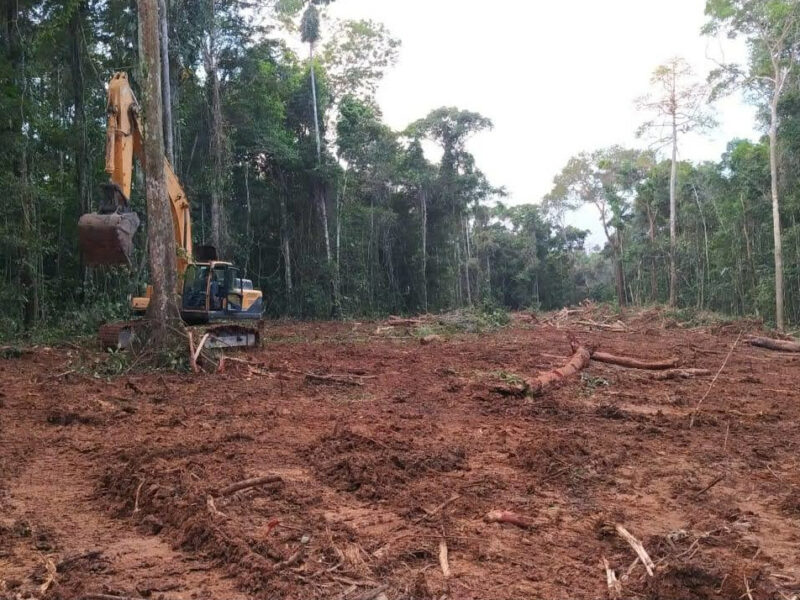For the past two years documentary filmmakers Joe Tucker and Adam Punzano have been working on their feature-length film Reimagining Progress – Voices from the Ecuadorian Amazon.
They are currently raising funds through a crowdfunding campaign to complete the editing of the footage acquired over the last year and to carry out a comprehensive distribution strategy for the film to spread the message as far as possible. Click here to watch the trailer for the film or to support the project.
Developed jointly after experiencing first-hand the pressures faced by indigenous people in the Ecuadorian Amazon during 2015, the project was launched with the primary aim of raising international awareness of some of the key threats currently faced by the Sápara and Kichwa communities of Ecuador, specifically their long-running struggle to resist the imminent entry of oil companies onto their territory and efforts to preserve their culture in the face of globalization.
However, more broadly than this, the film also aims to draw attention to the rich indigenous worldview and culture which we strongly believe can greatly inform the international community, both practically and philosophically, especially in regards to the current battle with climate change and the prevention of further environmental degradation in key biomes such as the Amazon.
“Many people think that our message is only the Sápara vision, but it also comes from the dream world, the spiritual world, that in our fight we’re not only thinking about Sápara culture, we’re thinking about saving and protecting the forest”Manari Ushigua
During our time filming Reimagining Progress we worked closely alongside the Sápara community of Llanchama Cocha and Kichwa of Sarayaku. They are bound together by a shared past and future with their common Kichwa language, which has historically ensured the survival of Sápara culture, and the threat they both face from the entry of the Chinese-owned oil consortium Andres Petroleum onto their territories following the illegal auctioning off of oil blocks 79 and 83 in January of this year.
Working first alongside the Sápara in the dense jungle of Pastaza province we were able to spend time filming with inspiring community members including the spiritual and political leader of the nation, Manari Ushigua who, in a detailed interview, explored the central role of dreaming in this threatened culture as well as the role he sees for the international community in assisting them in their struggle. Our time spent with Manari’s sister Gloria, President of the Sápara Women’s Association, as well as her close friend and colleague Rosa Dahua, also had a great impact on us as we discussed at length their unwavering resistance against the entry of Andes Petroleum in the face of increasing intimidation and the vital role indigenous women are playing at the forefront of this struggle.
“Because we’re people who live and walk here, indigenous women who were born on the ground, onto the earth. So as mothers and women we’re trying to save nature, to live intact in our territory. We want the government to respect our decision because indigenous women aren’t animals, dogs or cats for them to say, ‘pets, now you have to go,’ and then we go. No! This ended with our ancestors. Now, as indigenous women, we want to take the fight to the top. We want to demonstrate our power, our knowledge of the forest to the city so they have to respect our decision, the different way of life here.”Rosa Dahua
Over long periods in settings ranging from homes to chakras (small vegetable gardens) and the forest, we filmed hours of interviews with community members, gaining insights into the indigenous attitude towards Western notions of “development” and “poverty” which both play a large role in the way the debate over indigenous rights is continuously framed by those in power in Ecuador and also globally. Profit-driven extractivism on indigenous territory is often presented by those in local and national government as, at least in part, a means to “develop” these people who are often regarded by wider society as living in a state of poverty. This however subscribes to a very narrow view of what development is and often ignores the immense environmental value of the rainforest, the indigenous communities to whom it is home, and the deep relation these peoples have with it which is also ensuring its survival.
“We want to talk about this concept of development, as it is written in the Spanish dictionary. We’re not familiar with this (concept). We’re going to define a new concept where we, as the Sápara nation, treat the earth and space well. If we create a new way of understanding development, a new way to define a concept closer to the reality in which we live as people, this would help us to give more life to the earth and the history of humankind… For us, the natural world is everything. The natural world is why we understand that we are related with all beings that live here on this earth, such as the trees, the small insect, the water, the space. Within all these beings we’re just one other being. In this space nobody is the most important, the most knowledgeable, the being that knows everything. No. Each one has a function, so this is the way that helps us to maintain an equilibrium with nature.”Manari Ushigua
We also spent time in the latter part of our six months in Ecuador filming in the jungle community of Sarayaku. The community is on a different scale to Llanchama Cocha with over 1,000 inhabitants spread across barrios straddling a large river with the two sides connected by suspension bridges, all among dense jungle and a five-hour canoe journey from the nearest outside town. The Kichwa of Sarayaku have resisted the entry of oil firms onto their territory for more than thirteen years, with a landmark court case going back to 2003 which they won in 2012. Throughout this period they faced intimidation, the direct entry of army personnel onto their territory as well as the dumping of large quantities of high explosives used to conduct seismic trials in the early stages of oil exploration. Much of this material remains on their territory to this day.
“The new concessions are a product of the (government’s) failure to comply with the court judgment, to try to view us as if we’re stupid and to deceive us with supposed free, prior and informed consent, to try to impose an economic and social model completely distinct from our reality. So the fight continues to try to show a different model, a different plan to what they are used to… and to say this is our culture, this is our knowledge and this is why we have to defend it.”Patricia Gualinga
Here we lived in the home of Sabino Gualinga, one of the foremost Amazonian shamans and a figure with a great amount of knowledge and wisdom. With a lifetime spanning two worlds in a way, he has seen his community increasingly drawn into the global discourse and arena since the days of extremely limited contact in the 1930’s and 1940’s during his childhood.
During our time here we witnessed ceremonies lead by Sabino, allowing us to gain a greater insight into the culture in Sarayaku based on a deep connection with the surrounding environment and a concern for the common wellbeing of the community. We also were able to meet and work with the younger generation of leaders in the community, including Felix Santi, the current president, with whom we discussed their strategy as a whole in regards to protecting the forest and also their relationship with international organisations and the international community more generally.
“The living forest (Kawsak Sacha) is a sacred zone which we consider as an area of potential flora and fauna diversity which also contains the protector beings of the forest. Respect between the protector beings and human beings is what we want to put in the consciousness of humanity, to make a shift, a change of humanity’s consciousness. Why we, as indigenous cultures, propose this is that it’s the only proposal that can deal with climate change, that these areas are declared and conserved for all time to guarantee the lives of future generations. That’s what we have always raised in international forums.”Felix Santi
This interview illustrated one of the most striking aspects of the time spent living and working with these communities – the extremely strong internationalist element to their current resistance. They are in tune with the changing tide in global policymaking which increasingly recognizes that indigenous communities are in fact vital in the protection of the environment in their role as custodians. The Sarayaku community, for example, has developed and presented in international policy forums such as COP21 its innovative environmental proposals, most notably Kawsak Sacha, which pushes for a recognition of the forest as a living entity with rights.
They are acutely aware of the need for international partnerships and intelligent collaboration with communities and organizations globally with whom they can combine to help ensure the continued protection of their homelands, made clear in a powerful meeting with Sarayaku’s Director for International Relations, Patricia Gualinga at a demonstration outside of the community in Puyo, Ecuador.
“We are always here present for the communities and nationalities that are fighting, not only the Sápara but globally we are standing with those in North America, Canada, Peru, because the reality of indigenous peoples is the same in every part of the world.”Patricia Gualinga
With the assistance of community members such as the filmmaker Eriberto Gualinga, who also helped with Kichwa to Spanish translations, we conducted extensive interviews with a broad range of individuals, including Sabino who spoke poignantly about being one of the last shamans in the lineage and the sadness which accompanied this, the president of the youth council, as well as those involved in community medicinal work including the building up of an in-community jungle pharmacy.
Based on a continual dialogue with community members to inform the direction of the film, we also travelled to the deforested oil town of Nueva Loja, where Texaco (later Chevron) began operations at Lago Agrio in the 1970’s. The experience there was a stark and sobering contrast to the preserved rainforest as we conducted interviews with affected communities in this region who have experienced the effects of contamination from petroleum extraction first-hand. Meeting with José from the “Committee of the Affected,” we explored the effects down the line of oil extraction and associated contamination which, in the case of Nueva and Coca, continues to blight the lives of locals, decades after the majority of Chevron/Texaco’s drilling was taking place, including a crippling prevalence of cancers from consumption of polluted water and other health issues.
The tragic dangers of pursuing unsafe, extractive-driven development policies were also apparent when, with Alejandro from the Committee, we went to view the environmental damage caused which included toxic oil pools. His words carried considerable weight as he has personally lost family members, including his own father, to contamination-associated health issues.
“We shouldn’t forgive this company for the crimes it has committed here and in all the world. They should be sanctioned so it doesn’t happen again, because those that are living here are humans. We’re humans like in all the world. What humans need is to live and the (oil) companies shouldn’t only try to make money for themselves whilst the masses die with cancer, die from the problems caused by oil.”Alejandro
Through a mix of this extensive collection of interview footage interweaved with scenes from everyday life in the forest, including hunting, fishing, agricultural work and ceremonies, the film will present a detailed insight into life in these communities whilst acting as a vehicle to help carry their voices to a broad global audience. We hope it will contribute to inspiring people internationally to take real notice of the messages of indigenous communities and join the growing movement to both support them, and begin bringing about the urgent change needed to conserve the planet for all.


